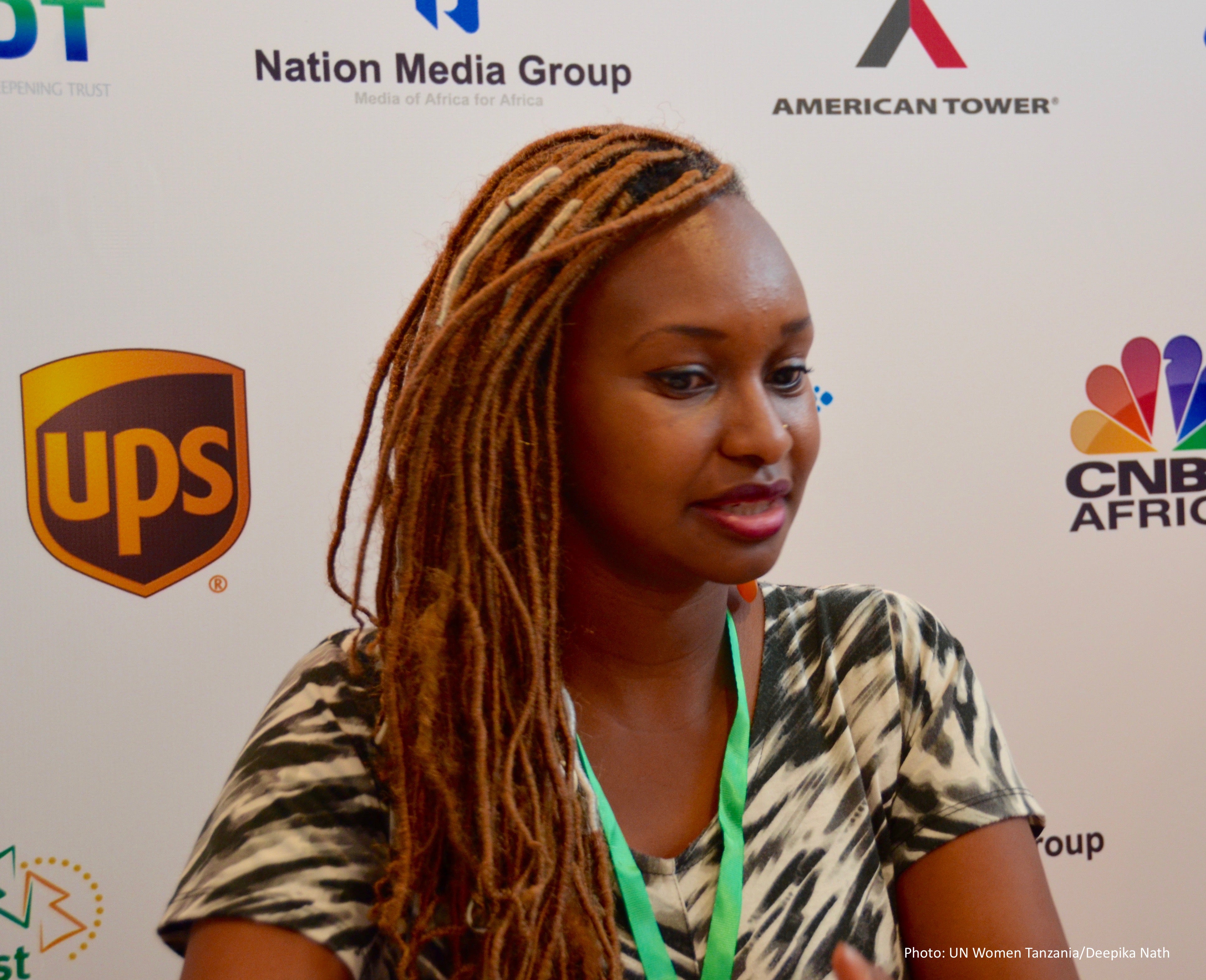Take 5: Time to Change the Narrative
Ms. Valentine Njoroge is a Kenyan journalist and media practitioner. She spoke to UN Women about why it is time to change the narrative of African women in the media. A trustee of the New Faces New Voices program of the Grace Machel Trust, and member of the Women in Media Network's (WIMN) Kenyan Chapter, she conducted a study titled, “Women in Media: what is the narrative?” The launch of the study took place on the margins of the Grace Machel Trust's bi-annual event, Women Advancing Africa (WAA), launched in Dar Es Salaam, Tanzania, in August 2017.Date:

Following her record of advancing women’s efforts in media, we had a brief chat with Ms. Njoroge to understand better her experience.
- Why is it important to change the narrative about women in the media?
I just completed a research in Kenya on how women are portrayed in the media and how much coverage we get. The first thing you notice is that there is a huge perception that Kenyans think women are getting equal coverage and good portraits in the media but when you do the actual media monitoring you will find that this is not true. Women get 30% coverage and that coverage is predominantly concerned with health and nutrition, human interest and crime.They are the victims of such crime, and so the number one word that comes to people’s mind when you ask about women is 'victim'. This is a skewed narrative and hence why it is very important to change the narrative.
- Why is it important for women to get coverage?
It is important for women to get more coverage so that they can tell their own stories. Policy makers need to have a better understanding of the realities women are facing and not the contrived life that they imagine. Public perception does not equate to the actual life that women lead and therefore, it is crucial for governments to support women to contribute economically in their countries.
- Where do we start to change this narrative?
Firstly, I would suggest the government to set up a policy that compels every media house to air 50% coverage of women. Women comprise 50% of the total Kenyan population so why aren’t they adequately covered in the media? Why aren’t their stories being told? Additionally, I would like to ask women to be proactive in speaking to the media and telling their stories.
Once the policies are established, if media houses tell an incomplete story, there should be repercussions and regulatory bodies put in place to ensure proper implementation.
Secondly, it is our collective responsibility. The consumer needs to recognize that they are receiving a partial message and demand for objectivity. On the other hand, the media needs to include women in discussions concerning development. They should ask about their political opinions, business, environment and other such matters.
- How do we change the narrative as media practitioners?
We need to speak to women. Visibility will inform policy because our leaders and policy makers will know how their people are living and therefore, that makes a big difference. We need to ‘re-imagine our systems', because one of the inheritances of feminism, African women have not stopped working in the home, they are also working outside the home.
- In what ways can we re-imagine our systems?
We can begin re-imagining African leadership. Women are the support system for masculine success and therefore handle domestic care so that men can go to the public domain and excel. There needs to be a shift of mindset on both the micro and macro scale within our homes. Men should come out to be supportive so that we can all pursue success.